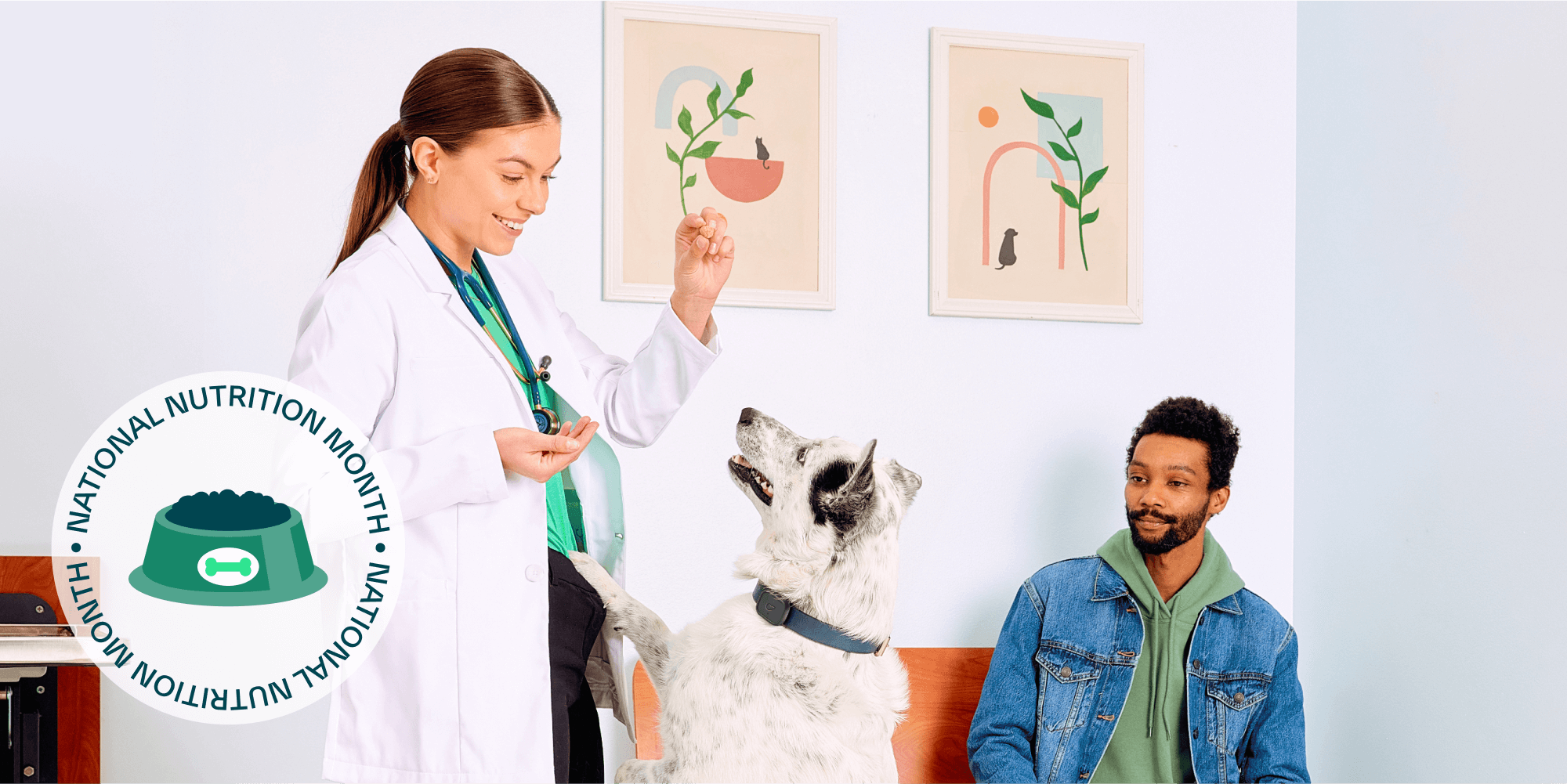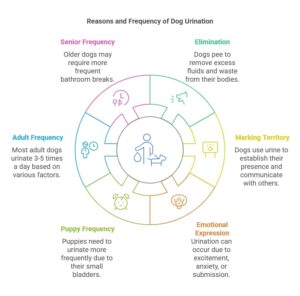Good nutrition is vital for dogs. It affects their health, energy, and happiness.
Just like humans, dogs need a balanced diet to thrive. Proper nutrition helps prevent diseases and supports their growth. Understanding the importance of dog nutrition can make a big difference. Feeding your dog the right food ensures they get essential vitamins and minerals.
This helps maintain a healthy weight and strong muscles. Good nutrition also boosts their immune system and enhances their coat condition. Owners often underestimate how food choices impact their dog's overall well-being. By focusing on dog nutrition, you invest in a longer, healthier life for your furry friend. Let's explore why dog nutrition matters and how it can change your pet's life for the better.

Credit: www.24hourdogdaycare.com
Table of Contents
ToggleIntroduction To Dog Nutrition
Understanding dog nutrition is essential for pet owners. A balanced diet affects your dog’s overall health. It impacts their energy, coat quality, and longevity. Proper nutrition helps prevent various health issues. Dogs need the right mix of proteins, fats, and carbohydrates. Knowing how to choose the best food is crucial.
The Role Of Diet In Canine Health
The diet of your dog plays a vital role in its well-being. Here are some key points:
- Energy Levels: Proper nutrition keeps your dog active.
- Weight Management: A balanced diet helps maintain a healthy weight.
- Digestive Health: Good food supports a healthy digestive system.
- Skin and Coat Quality: Nutrients influence the condition of their fur.
- Immune System: Nutrition strengthens their defense against diseases.
Choosing the right food helps prevent obesity. Obesity can lead to serious health problems. Consult a vet for personalized dietary recommendations.
Debunking Common Myths About Dog Food
Many myths surround dog food choices. Here are some common misconceptions:
| Myth | Fact |
|---|---|
| All dog foods are the same. | Quality varies. Ingredients matter. |
| Grain-free is always better. | Some dogs need grains for fiber. |
| Homemade food is always healthier. | Homemade meals can lack essential nutrients. |
| Dogs can eat all human food. | Some foods are toxic to dogs. |
Understanding these myths helps in making informed choices. Always read labels and consult your vet before changing diets.
Essential Nutrients For Dogs
Understanding essential nutrients for dogs is vital for their health. Proper nutrition helps dogs thrive. It supports their growth, energy, and overall well-being. Let's explore the key nutrients every dog needs.
Proteins: Building Blocks Of Health
Proteins are crucial for dogs. They help build muscles and tissues. Proteins are made of amino acids. Dogs need 22 amino acids for good health. Some amino acids come from food. Others are made in the body. Quality protein sources include meat, fish, and eggs. A diet rich in protein supports strong bones and a healthy immune system.
Fats: Energy And Cell Function
Fats provide energy for dogs. They support cell function and hormone production. Fats also help absorb vitamins. Omega-3 and Omega-6 fatty acids are essential. These fats promote healthy skin and a shiny coat. Good sources of fat include fish oil, chicken fat, and flaxseed oil. Balance is key; too much fat can lead to obesity.
Carbohydrates: Fuel For Activity
Carbohydrates are important for energy. They fuel your dog's daily activities. Dogs can digest carbs easily. Whole grains, fruits, and vegetables are great sources. Fiber from carbs helps digestion. It keeps your dog feeling full and healthy.
Vitamins And Minerals: Micro-nutrient Essentials
Vitamins and minerals support many body functions. They help with bone health, vision, and immune response. Key vitamins include A, D, E, and K. Minerals like calcium and phosphorus are also vital. A balanced diet usually provides these nutrients. Always check the food label for the right balance.
The Impact Of Diet On Life Stages
Every stage of a dog's life requires different nutrition. Puppies, adult dogs, and senior dogs all have unique needs. Understanding these needs helps ensure your dog stays healthy and happy.
Nutritional Needs Of Puppies
Puppies grow quickly and need special nutrition. Their bodies are developing, so they require more protein, fat, and calories than adult dogs. A balanced diet supports their growth.
Key nutrients for puppies include:
- Protein: Essential for muscle development.
- Fat: Provides energy and supports brain development.
- Calcium: Crucial for strong bones and teeth.
- Vitamins: Support overall health and immune function.
Choose a high-quality puppy food. Look for options with real meat as the first ingredient. Follow the feeding guidelines on the package for best results.
Adult Dogs: Maintaining Optimal Health
Adult dogs need a balanced diet to maintain health. They require fewer calories than puppies but still need adequate nutrients. A proper diet helps maintain weight and energy levels.
Important components of an adult dog's diet include:
- Protein: Supports muscle maintenance.
- Fiber: Aids digestion.
- Healthy fats: Supports skin and coat health.
- Vitamins and minerals: Essential for overall health.
Monitor your dog's weight and adjust food portions accordingly. Regular vet check-ups help ensure your dog stays on the right track.
Senior Dogs: Adjusting For Age
As dogs age, their nutritional needs change. Senior dogs often require fewer calories but need more fiber and certain nutrients. A proper diet supports their health and mobility.
Focus on these nutrients for senior dogs:
| Nutrient | Importance |
|---|---|
| Fiber | Improves digestion and prevents constipation. |
| Joint supplements | Support joint health and mobility. |
| Lower protein | Helps with kidney function. |
| Antioxidants | Boosts immune system and fights aging. |
Choose senior dog food that meets these needs. Regular vet visits are crucial for monitoring health changes.
Special Dietary Considerations
Dog nutrition is not one-size-fits-all. Each dog has unique needs. Special dietary considerations help ensure your dog stays healthy. Some dogs may have allergies, specific diseases, or need special diets. Understanding these factors is important for your dog's well-being.
Allergies And Intolerances
Many dogs suffer from food allergies or intolerances. Common allergens include:
- Beef
- Chicken
- Dairy
- Wheat
- Eggs
Signs of allergies may include:
- Itchy skin
- Ear infections
- Upset stomach
- Vomiting
Consult your vet for proper testing. An elimination diet can help identify the allergen. Choose hypoallergenic dog food if needed.
Diet And Disease Management
Some diseases require special diets. Here are some common conditions:
| Disease | Recommended Diet |
|---|---|
| Diabetes | High fiber, low fat |
| Kidney Disease | Low protein, low phosphorus |
| Heart Disease | Low sodium, high omega-3 |
Work with your vet. They can suggest the best diet for your dog’s condition. A proper diet helps manage symptoms.
The Truth About Grain-free Diets
Grain-free diets are popular but not always the best choice. Some dogs thrive on grains. Others may benefit from a grain-free diet. Understand the pros and cons:
- Pros: May help with allergies, easier digestion.
- Cons: Risk of heart disease, nutrient deficiencies.
Consult your vet before changing your dog's diet. They can guide you on what is best for your pet.
Reading Dog Food Labels
Understanding dog food labels is essential for every pet owner. These labels provide important information about what your dog eats. Knowing how to read them helps you choose the best food for your furry friend.
Ingredients And Nutritional Analysis
Ingredients are the first thing to check on a dog food label. The list shows what is in the food. The ingredients are listed in order by weight. The first few ingredients are the most important. Look for high-quality proteins like chicken, beef, or fish. Avoid foods with vague terms like “meat meal” or “by-products.”
| Ingredient Type | Examples | Avoid |
|---|---|---|
| High-Quality Protein | Chicken, Beef, Fish | Meat Meal, By-Products |
| Whole Grains | Brown Rice, Oatmeal | Fillers |
| Vegetables | Carrots, Peas | Artificial Colors |
Check the nutritional analysis too. This shows the food's protein, fat, fiber, and moisture content. Look for a balance that meets your dog's needs. A good balance keeps your dog healthy and active.
Understanding Food Quality And Standards
Food quality is crucial. Look for foods made with real ingredients. Brands should meet specific safety standards. Look for labels that show the product is made in a country with strict pet food regulations.
- Look for AAFCO approval.
- Check for quality assurance labels.
- Research the brand's reputation.
Read reviews from other pet owners. This can help you choose the best food. Remember, a healthy diet leads to a happy dog.

Credit: www.farviewvethospital.com
Homemade Diets And Raw Feeding
Many dog owners consider homemade diets and raw feeding. These options can provide health benefits. They allow owners to control ingredients and tailor nutrition. However, it is essential to understand the risks and rewards.
Pros And Cons Of A Homemade Diet
Homemade diets offer various advantages and disadvantages. Here are some key points:
| Pros | Cons |
|---|---|
| Control over ingredients | Risk of nutrient imbalance |
| Fresh and natural food | Time-consuming to prepare |
| Customizable for allergies | Higher cost compared to commercial food |
| Better digestion | Requires careful research |
Homemade diets can lead to better health. Owners must ensure balanced nutrition. Consulting a vet helps with meal planning.
Safe Practices For Raw Feeding
Raw feeding has gained popularity among dog owners. It involves feeding dogs uncooked meat, bones, and vegetables. Here are some safe practices to follow:
- Consult a veterinarian before starting raw feeding.
- Use fresh, high-quality ingredients to prevent illness.
- Balance the diet with proteins, fats, and vitamins.
- Introduce new foods gradually to avoid digestive issues.
- Practice proper hygiene while handling raw food.
Always monitor your dog’s health with a raw diet. Look for signs of allergies or digestive problems. Adjust the diet as needed.
Supplements For Canine Health
Dog nutrition is key to a healthy life. Some dogs need more than just food. This is where supplements come in. They help fill gaps in nutrition. Supplements can boost your dog’s health. They support joints, skin, and overall well-being.
When Are Supplements Necessary?
Supplements may be needed in various situations:
- Age: Older dogs may need more nutrients.
- Diet: If your dog eats low-quality food.
- Health issues: Dogs with specific health problems.
- Recovery: After surgery or illness.
Always consult your vet before starting any supplements. They can guide you based on your dog’s needs.
Popular Supplements And Their Benefits
Many supplements can help your dog. Here are some popular options:
| Supplement | Benefits |
|---|---|
| Glucosamine | Supports joint health and mobility. |
| Omega-3 Fatty Acids | Improves skin health and reduces inflammation. |
| Probiotics | Aids digestion and boosts the immune system. |
| Multivitamins | Fills nutritional gaps in your dog’s diet. |
| Antioxidants | Protects cells from damage and supports aging dogs. |
Choose supplements based on your dog’s specific needs. Always read labels carefully. Quality matters when choosing products.
Transitioning Diets Safely
Changing your dog’s diet can be tricky. It’s important to do it safely. A sudden change can upset your dog's stomach. This section will guide you on how to transition diets smoothly.
How To Introduce New Foods
Start by mixing the new food with the old food. Follow this simple plan:
- Days 1-2: Mix 25% new food with 75% old food.
- Days 3-4: Mix 50% new food with 50% old food.
- Days 5-6: Mix 75% new food with 25% old food.
- Day 7: Serve 100% new food.
This method helps your dog adjust gradually. Keep an eye on their response. Some dogs may need longer to adjust. Be patient and flexible.
Monitoring Your Dog's Reaction To Diet Changes
Watch your dog closely during the transition. Look for signs of discomfort or allergies. Common signs include:
- Vomiting
- Diarrhea
- Itching or skin problems
- Loss of appetite
Keep a diary of your dog’s behavior. Note any changes in energy levels or mood. If any issues arise, consult your vet. They can provide tailored advice.
Safe diet transitions lead to healthier dogs. Take it slow. Your dog’s health matters.
Common Feeding Mistakes To Avoid
Feeding your dog is more than just filling a bowl. It is about their health and happiness. Many pet owners make simple mistakes. These mistakes can lead to serious health problems. Learning what to avoid is key to better nutrition.
Overfeeding And Obesity
Overfeeding is a common mistake. Many dog owners think more food equals more love. This is not true. Overweight dogs face many health risks. These include diabetes, joint pain, and heart disease.
Portion sizes matter. Always check the feeding guidelines on dog food labels. Measure food carefully. Use a cup or a scale. Stick to regular feeding times. Avoid free-feeding, where food is always available.
Inappropriate Treats And Snacks
Treats are a fun way to reward your dog. However, not all treats are healthy. Many snacks are high in calories and low in nutrients. Some may even be toxic. Chocolate and grapes are examples.
Choose treats that are healthy and made for dogs. Look for options that contain real meat or vegetables. Limit treats to no more than 10% of daily calories. This keeps their diet balanced and nutritious.

Credit: www.whistle.com
Expert Advice On Dog Nutrition
Proper nutrition is key for your dog's health. Expert advice can help you choose the best food. This advice comes from veterinarians and nutritionists. They understand the needs of dogs. Their guidance ensures your pet stays healthy and happy.
Consulting With A Veterinarian Nutritionist
Veterinarian nutritionists specialize in pet diets. They can create a personalized plan for your dog. Here are some reasons to consult one:
- Health Issues: Some dogs have special dietary needs.
- Life Stages: Puppies, adults, and seniors need different nutrients.
- Weight Management: Proper diet helps maintain a healthy weight.
During your visit, expect a full assessment. This includes:
- Evaluating your dog's health.
- Discussing dietary preferences.
- Creating a balanced meal plan.
Regular check-ins can adjust the diet as needed.
Staying Informed About Canine Dietary Research
Dog nutrition is always changing. New research can improve your dog's diet. Here are ways to stay updated:
- Read pet nutrition blogs.
- Follow veterinary organizations.
- Attend local pet health seminars.
Consider these key topics in research:
| Topic | Importance |
|---|---|
| Raw Diets | Understand risks and benefits. |
| Grain-Free Diets | Know potential heart risks. |
| Supplements | Learn about essential vitamins and minerals. |
Staying informed helps you make the best choices. Your dog deserves the best nutrition possible.
Frequently Asked Questions
What Is The Best Diet For Dogs?
The best diet for dogs includes high-quality proteins, healthy fats, and essential vitamins. Look for balanced dog foods that meet AAFCO standards. Consider your dog's age, size, and activity level when choosing. Consult your veterinarian for tailored dietary advice based on your dog's unique needs.
How Does Dog Nutrition Affect Behavior?
Dog nutrition significantly impacts behavior and mood. A balanced diet helps maintain stable energy levels, reducing hyperactivity and anxiety. Nutrient deficiencies can lead to irritability and aggression. Proper nutrition supports overall health, which positively influences behavior and temperament in your furry friend.
Why Is Hydration Important For Dogs?
Hydration is crucial for a dog's overall health. Water aids digestion, regulates body temperature, and supports joint health. Dehydration can lead to serious health issues, including kidney problems. Ensure your dog has access to fresh water at all times for optimal hydration.
Can I Feed My Dog Homemade Food?
Yes, you can feed your dog homemade food. However, it's essential to ensure the diet is balanced and meets all nutritional needs. Consult your veterinarian or a pet nutritionist for guidance on creating a healthy recipe. Homemade diets can be beneficial when properly formulated.
Conclusion
Good nutrition is vital for your dog's health. It supports their growth and energy. A balanced diet helps prevent diseases. Choose high-quality food for your furry friend. Always check the ingredients before buying. Consult a vet for personalized advice. Healthy dogs are happy dogs.
Investing in nutrition pays off in the long run. Remember, what you feed your dog matters. Take the time to learn and choose wisely. A little effort goes a long way in keeping your pet healthy and thriving.














